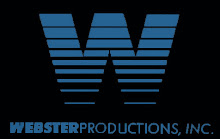Don't think you're business is big enough to take advantage of the stuff we've been talking about?
Read This: From the American Express Small Business Online Forum

Mar 31, 2010 -
On MSNBC’s Your Business show recently, there was a story about a young entrepreneur who has grown quite a large retail business. But, he hasn’t grown his business in the traditional “retail” way of just adding more stores.
Being a franchise guy, this obviously goes against what I know about growing businesses. In the franchise world, there’s really only one way to grow, and that’s by selling new franchise units. Do you really think that Ray Kroc would have been successful as he was if he stuck to one or two little hamburger joints?
How about 7-Eleven? Thousands of 7-Eleven franchisees benefit tremendously by being part of a huge “buying” system. In other words, as a 7-Eleven franchisee, you can probably purchase a case of Ho-Ho’s for 15% less than Tommy’s Grocery, Bait And Tackle, that’s located down the road a piece. That leads to more profit for you. Bigger is better in that case.
As I was saying, the MSNBC’s Your Business show lead off recently with a terrific story about a cupcake guy named Johnny. Actually, it’s Johnny CupCakes, and Johnny doesn’t actually sell cupcakes. He sells t-shirts.
Johnny only has few stores. Here’s what Johnny says;
“Without selling out, I've managed to build a multi-million dollar business, completely homegrown. And I've done it without going your typical route. No college education, no start up loans, no investors, no wholesaling or help from giant stores, and little-to-no advertising. I've managed to employ both of my parents, my sister, my neighbor, and all of my close friends so that they don't have to work jobs they don't enjoy.”
Instead of mass producing mass produced looking products, he mass produces unique, limited-edition products. He’s been able to create a product that is so unique; people are willing to stand in line to have it.
Johnny is known for his great looking t-shirts which sell for $35 on up. That’s $35-$40 for a t-shirt.
Johnny’s way of doing business consists of selling unique products at premium prices. Quantity is obviously important, but not at the expense of changing his business model into a 250 store retail chain. So far, his current model works.
In a way, it’s the classic David vs. Goliath story; a “small” store taking on the big guys.
Here’s another example:
St. Louis entrepreneur David Siteman Garland is developing what amounts to a television network without the television. He’s created a daily online video show for entrepreneurs and marketers. It’s called A Rise To The Top. David has had some pretty influential guests on the show, including Chris Brogan, Anita Campbell, Peter Shankman, and Gary Vaynerchuck, to name just a few.
Is this another classis David vs. Goliath scenario? Is David going up against the big television networks?
Actually, David is smart enough to know that television is still here. He actually has an arrangement with KDNL-TV/DT St. Louis, which just so happens to be an ABC affiliate. His online shows are re-broadcast on the television station Sunday mornings, and four nights a week. (Late nights, actually. Right after the Jimmy Kimmel show)
David’s business model keeps him quite busy, but he doesn’t have to expand his video network like the big television broadcast systems do. He may have to invest in a bigger server, or buy the latest-greatest video camera eventually, but he certainly doesn’t have to open stations all across the country to expand his network. He can stay “small.”
You can bet that the television stations are watching this “David’s” shows. Online.





No comments:
Post a Comment